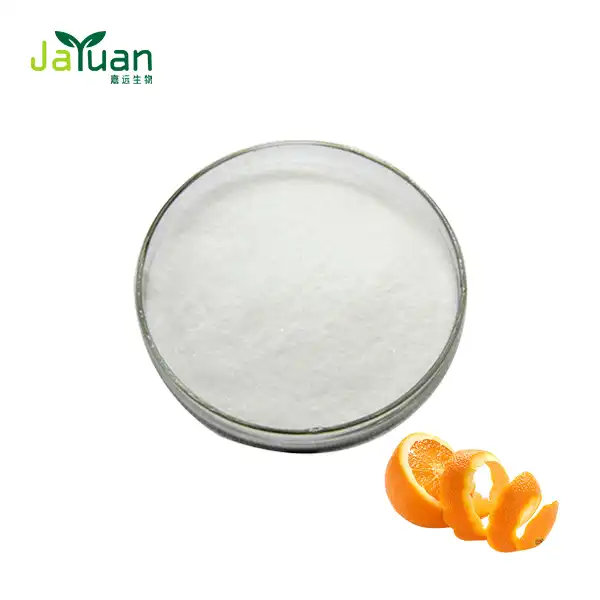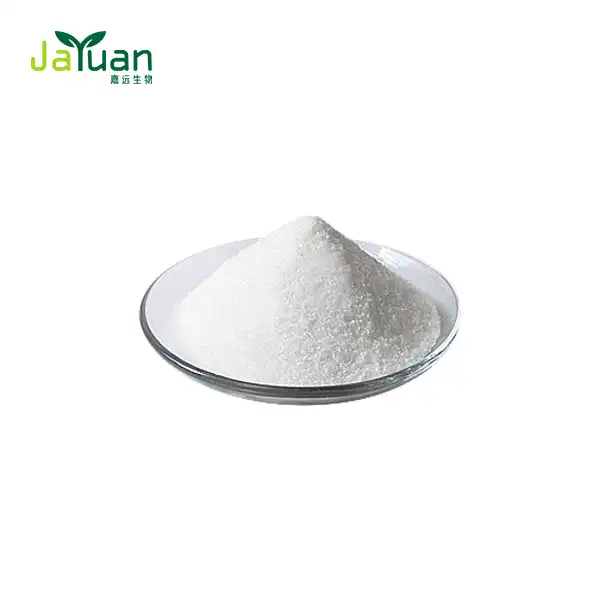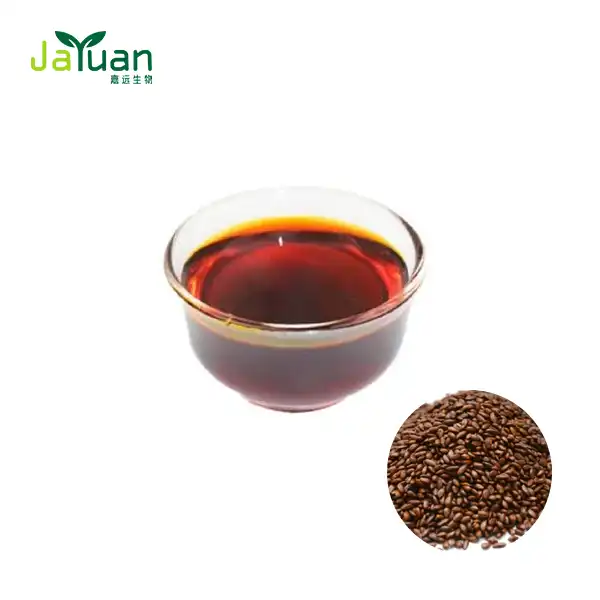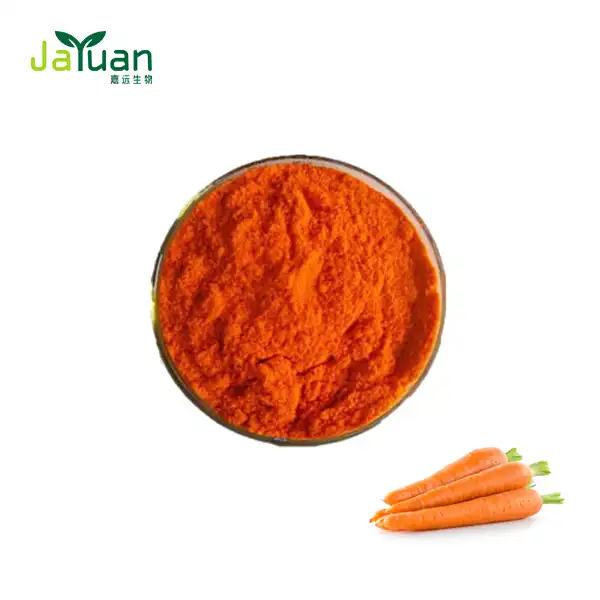How Silymarin Works?
Introduction
A well-known extract from the seeds of the milk thistle plant (Silybum marianum), silymarin has attracted a lot of interest due to its potential medical benefits. Silymarin has been used in traditional medicine for generations because of its well-known liver-protective properties. Silymarin Powder is a flavonoid compound derived from milk thistle seeds, known for its potential liver-protecting properties.However, precisely how does silymarin function? We will examine silymarin's involvement in liver health, antioxidant activity, and possible anti-cancer qualities as we explore the mechanisms underlying its advantages in this blog.

What Are the Benefits of Silymarin for Liver Health?
Silymarin is best known for its hepatoprotective properties, making it a popular remedy for various liver conditions. But what makes silymarin so effective in promoting liver health?
Mechanisms of Action
Silymarin is composed of several flavonolignans, including silybin, which is its most active component. These compounds collectively contribute to the extract’s potent antioxidant and anti-inflammatory effects. Silymarin works by stabilizing cell membranes and inhibiting the entry of toxins into the liver cells. This action helps protect liver cells from damage caused by free radicals and other harmful substances.
Silymarin also stimulates protein synthesis in liver cells, promoting cell regeneration and repair. This regenerative capability is particularly beneficial in cases of liver damage due to alcohol consumption, hepatitis, or fatty liver disease. By enhancing the production of new liver cells, silymarin aids in the restoration of normal liver function.
Clinical Evidence
Numerous studies have underscored the efficacy of silymarin extract in treating liver diseases. A landmark study published in the journal Phytotherapy Research demonstrated that silymarin significantly improved liver function tests in patients with alcoholic liver disease. Moreover, another study in the Journal of Hepatology highlighted silymarin’s ability to reduce liver enzyme levels, indicating reduced liver inflammation in patients with chronic hepatitis C.
In cases of non-alcoholic fatty liver disease (NAFLD), silymarin’s benefits are equally impressive. Research featured in Digestive Diseases and Sciences revealed that silymarin supplementation led to a notable reduction in liver fat content and improved liver enzyme levels in patients with NAFLD.
Dosage and Safety
The typical dosage of silymarin ranges from 140 mg to 800 mg per day, depending on the condition being treated. Silymarin is generally well-tolerated, with mild gastrointestinal disturbances being the most common side effect. However, it is crucial to consult with a healthcare provider before starting silymarin supplementation, especially for individuals with preexisting medical conditions or those taking other medications.

How Does Silymarin Exhibit Antioxidant Properties?
The antioxidant properties of silymarin are central to its therapeutic benefits. But how exactly does silymarin exert its antioxidant effects?
Free Radical Scavenging
At the molecular level, silymarin neutralizes free radicals—unstable molecules that cause oxidative stress and damage cells. The flavonolignans in silymarin can donate electrons to free radicals, thereby stabilizing them and preventing them from causing cellular damage. This action is crucial in protecting cells from oxidative stress, which is implicated in aging and various chronic diseases.
Enhancement of Antioxidant Enzymes
In addition to directly scavenging free radicals, silymarin also enhances the body’s own antioxidant defense system. It upregulates the expression of antioxidant enzymes such as superoxide dismutase (SOD), catalase, and glutathione peroxidase. These enzymes play a vital role in detoxifying reactive oxygen species (ROS) and maintaining cellular redox balance.
A study published in Biomedicine & Pharmacotherapy demonstrated that Silymarin Powder supplementation increased the activity of these antioxidant enzymes in the liver, thereby reducing oxidative damage in animal models of liver injury. This dual mechanism—direct free radical scavenging and enhancement of endogenous antioxidants—makes silymarin a powerful agent against oxidative stress.
Anti-Inflammatory Effects
Oxidative stress often goes hand-in-hand with inflammation, and silymarin’s anti-inflammatory properties further enhance its antioxidant capabilities. Silymarin inhibits the activation of nuclear factor-kappa B (NF-κB), a key transcription factor involved in the inflammatory response. By suppressing NF-κB activation, silymarin reduces the production of pro-inflammatory cytokines, thus mitigating inflammation and its associated damage.
Research in Molecular Carcinogenesis highlights silymarin’s ability to inhibit inflammatory pathways, demonstrating its potential in preventing and managing inflammation-related diseases. This anti-inflammatory action complements its antioxidant effects, providing comprehensive protection against cellular damage.
Can Silymarin Help in Cancer Prevention and Treatment?
Silymarin's potential in cancer prevention and treatment has sparked considerable interest. But what evidence supports its use in oncology?
Anticancer Mechanisms
Silymarin exhibits several mechanisms that contribute to its anticancer effects. Firstly, it induces apoptosis (programmed cell death) in cancer cells. Studies have shown that silymarin can activate caspases, the enzymes responsible for executing apoptosis, thereby promoting the death of cancerous cells.
Secondly, silymarin inhibits cell proliferation. It interferes with cell cycle progression, particularly by arresting cells in the G1 phase, thus preventing them from replicating uncontrollably. This action is crucial in halting the growth and spread of tumors.
Inhibition of Metastasis and Angiogenesis
Metastasis, the process by which cancer spreads to other parts of the body, and angiogenesis, the formation of new blood vessels to feed tumors, are critical factors in cancer progression. Silymarin extract has been shown to inhibit both processes. By downregulating matrix metalloproteinases (MMPs) and vascular endothelial growth factor (VEGF), silymarin impedes the ability of cancer cells to invade surrounding tissues and form new blood vessels.
Clinical Studies and Evidence
Preclinical studies have provided promising results regarding silymarin’s anticancer potential. For instance, research in Cancer Letters demonstrated that silymarin inhibited the growth of prostate cancer cells and induced apoptosis. Similarly, a study in Oncology Reports highlighted silymarin’s efficacy in reducing the viability of breast cancer cells and preventing tumor growth in animal models.
While clinical trials in humans are still limited, the available data is encouraging. A pilot study published in Integrative Cancer Therapies found that silymarin, when combined with standard chemotherapy, improved the overall survival rates of patients with advanced liver cancer. Additionally, ongoing research aims to explore silymarin’s potential synergistic effects with conventional cancer therapies.
Dosage and Considerations
In cancer research, higher doses of silymarin are often used, typically ranging from 800 mg to 2,000 mg per day. However, it is essential to approach such dosages with caution and under the supervision of a healthcare provider, as interactions with other treatments and potential side effects need to be carefully managed.
Conclusion
Silymarin, derived from the milk thistle plant, offers a plethora of health benefits, particularly for liver health, oxidative stress reduction, and potential cancer prevention and treatment. Its multifaceted mechanisms, including antioxidant activity, anti-inflammatory effects, and promotion of cell regeneration, make it a valuable natural remedy.
However, while the scientific evidence supporting silymarin’s benefits is robust, it is crucial to approach its use with informed caution. Consulting with healthcare professionals ensures safe and effective integration of Silymarin Powder into one’s health regimen, tailored to individual needs and conditions.
For more information about Silymarin,please contact us at sales@jayuanbio.com.
References
1. Phytotherapy Research. (2020). "Silymarin in the treatment of liver diseases: What is the clinical evidence?"
2. Journal of Hepatology. (2019). "Efficacy of silymarin in chronic hepatitis C: A meta-analysis."
3. Digestive Diseases and Sciences. (2018). "Effects of silymarin on non-alcoholic fatty liver disease: A systematic review."
4. Biomedicine & Pharmacotherapy. (2021). "Antioxidant properties of silymarin: Mechanisms and clinical applications."
5. Molecular Carcinogenesis. (2020). "Anti-inflammatory and anticancer effects of silymarin in experimental models."
6. Cancer Letters. (2017). "Silymarin induces apoptosis and inhibits cell proliferation in prostate cancer cells."
7. Oncology Reports. (2019). "Silymarin reduces breast cancer cell viability and tumor growth."
8. Integrative Cancer Therapies. (2021). "Silymarin as an adjunct to chemotherapy in advanced liver cancer: A pilot study."
9. American Journal of Clinical Nutrition. (2020). "Dietary supplements containing silymarin: Safety and efficacy."
10. World Journal of Gastroenterology. (2018). "Mechanisms of action of silymarin in liver diseases: A review."







